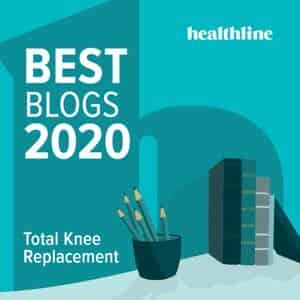Hi
@bethreads
Sorry I took so long to respond. Been a busy couple of days.
Okay, so let's get into this. First, on the pain thing. Your pain is nearly identical to what I felt both before and after the scope. For me, the pain was caused by two things, inflammation, and nerve compression (caused by inflammation). Prior to the scope, the inflammation was caused by a shredded labrum and mincemeat cartilage. Let me tell you a little about the condition I had, and that might make things a bit more clear, and then I will talk about the pain and what not.
I had what is called an femoroacetabular impingement (FAI) with a cam impingement. Basically, the head of the femur was not shaped correctly, and the rim of my hip was too shallow. The end result was every time a front loaded the hip, I damaged the labrum and the cartilage. The interesting thing here is that it is estimated that anywhere from 10%-20% of the population have this defect, but it usually does not cause many problems... at least not this early in life (my symptoms began in my 20's). However, if you regularly play sports that front/side load the hip (at least, if that is where the impingement is... which is about 80% of the cases), you will constantly do more damage. IT is why labrum repair surgery is so common no with professional hockey and soccer (football) players. It get's even more interesting in that the deterioration/damage does not appear to just happen over time... rather an event (usually direct trauma to the hip) seems to trigger the deterioration. So just because you have an FAI, and play hockey (for example), does not mean you will have an issue... but if you have an injury to the hip, and front load it regularly, and have FAI... you definitely will.
In my case, the doc went in to do the FAI correction (shave down the bone of the fermur and deepen the rim) and repair the labrum. Unfortunately in my case, by the time the doc got in there (I was 36 at the time of surgery), the larum was absolutely shredded and the cartilage at the front of the hip was severely damaged. Thus, the hip was already arthritic (though only mildly so as I still had quite a lot of cartilage around the damaged area and quite good joint space.
Okay, so pain before was caused by the labrum and cartilage damage (inflammation), which in turn put pressure on the series of nerves running through the hip (primarily the femoral nerve). This often felt like a deep ache, but would radiate down the lag (the nerve pain) into the knee and shin. After the surgery, the pain was still there, though had changed a bit... leas nerve pain. At my three month follow up, I ask the doc why this pain was still there. He said that the reason why the pain was still there was the same reason the labrum and cartilage needed to be repaired in the fist place. Not the FAI, that was fixed, but apparently the hip joint has very little blood supply (and the cartilage has none)... so healing is a very slow process. If the labrum is damaged significantly enough, it will not heal on its own. After surgery, the labrum is repaired, but still damaged (sewn together with sutures), thus it can take months (often a year or more) for full recovery. The pain after surgery is primarily caused by the inflammation around and in the hip. The pain for me resolved after the 6 month mark... so I would expect that the same will happen for you.... though for me, not entirely, which I will explain in a moment.
But first, let's talk about the hip pain. Based on what you have described, this is also likely similar to the pain I felt (and still feel). It feels like the thigh, but in my case is caused by the hip flexor... specifically tendinitis. Basically, my hip flexors (which were already shortened due to limited range of motion before the surgery) where stretched out when my leg was put into traction. This caused damage to the hip flexors. The PT I went to (who did not understand the protocol for FAI recovery) pushed my hip into positions it should never have been put into, further damaging the hip flexor. So the tendinitis was the end result.... with rest being the cure... well, a partial cure.
Okay, so why did my pain never fully resolve. Well, as I said, by the time the doc got in there to fix the FAI, the cartilage at the front of the hip was severely damaged, meaning the hip was already arthritic. Due to the location of the arthritis, the pain was felt in the front of the hip. It was mild at first (after the pain from the scope resolved), but over time got progressively worse. The thing with arthritis, is inflammation cases deterioration of the cartilage. So as the arthritis get worse, the inflammation increased, causing more damage to the cartilage, thus worsening the arthritis, causing more inflammation... and on and on. Even though my arthritis was "mild" according to the x-ray, I still felt progressively worsening pain. To be clear, the scope had me nearly pain free for about 3 years. After that the arthritis only progressed slowly for the next couple. Then, within a period of 6 months (back in 2017) it went from mild, to moderate, to severe. Apparently arthritis can be stable for many years, and then something happens, and in deteriorates very quickly.
So, what about you. Well, I am no doc... clearly... but I will reiterate what my scope doc told me (assuming your hip is already arthritic). A hip replacement is likely in your future. It may be a couple of years from now... it may be 20 years from now.... there is no way of knowing how quickly your hip will deteriorate... if it does at all. The good news is that the pain you are feeling is likely caused by inflammation (though you cannot rule out nerve pain, which I will address in just a moment), and will mostly or completely resolve in time as the structures of the hip heal (I am paraphrasing the doc by the way... so it is not verbatim).
So if I were you (and this is m opinion only), for me I would rest (because the structures of your hip need to heal... which takes time, and you likely have some damage to the surrounding muscles like the hip flexors from the traction which also needs to heal. Focus the PT on gentle stretches and strengthening... if it hurts, even a little bit when doing a PT stretch or exercise, do not push through it... that is you muscles/tendons telling you are going too far.
Okay, so before a conclude this long winded reply, I want to address nerve pain. Nerves are complex little guys which I do not fully understand. My nerve pain resolve almost completely after the scope. The doc felt this was likely do to reduced inflammation... but, he offered a second possibility... and again, I am going to paraphrase here. When you have limited ROM in the hip, the body compensates for, often by causing changes to your gait. It is why many folks with hip arthritis develop a progressively worsening limp. For some, like myself, the ROM becomes so restricted, that the body starts to move joints that are not supposed to move, just so you you can walk. In my case, the vertebrae took the brunt of this "unnatural movement". The L4/5 for sure, but also the S1 developed lumberaization (your SI joints should be fused, but my S1 was moving like a Lumbar vertebrae). So, the nerve pain I felt (and still feel) may actually have been cause by inflammation of the muscles around the vertebrae from over compensation. The doc said that there is just no way of knowing, but with increase ROM, there will be less compensation and inflammation, and the nerve pain should lessen over time... which it did... until the arthritis got bad.
One of the driving reasons I had a THR (besides lessening my pain and being able to walk without a severe limp) was to avoid developing arthritis in the lower back... something that my dad developed (he didn't have a THR until his late sixties).
Anyway, I hope this helps you. One thing that worked really well for the pain from the scope was the ice machine (Cold Rush Cold Therapy). I used it for years after the scope, and I believe it helped buy more time until I needed the THR. It developed a leak in a non replaceable part, so I am not using it after my THR (though I am considering buying another one... it is worth the money). The other thing that helped me was Advil... which I cannot take with the THR due to bone growth issues and blood thinners... but did wonders for pain with the scope.
Oh, one thing with the scope you will find (and I know many who have had a scope just for a labrum repair, and all have said the same thing). Warming up the hip, and icing it down after activity (like hockey, or running, or a day of hiking) is simply going to be part of your like from now on. The ache after activity is just something that will happen, but warming up the joint... and icing it down after almost completely eliminates any next day soreness.
Let me know if you want any more information (assuming you are still reading at this point

... I will help any way I can.
Cheers
 United States
United States



 Good to see your post! At 6 months, their is still healing happening and I myself am saw alot of improvement from 6 months to a year out.
Good to see your post! At 6 months, their is still healing happening and I myself am saw alot of improvement from 6 months to a year out.






